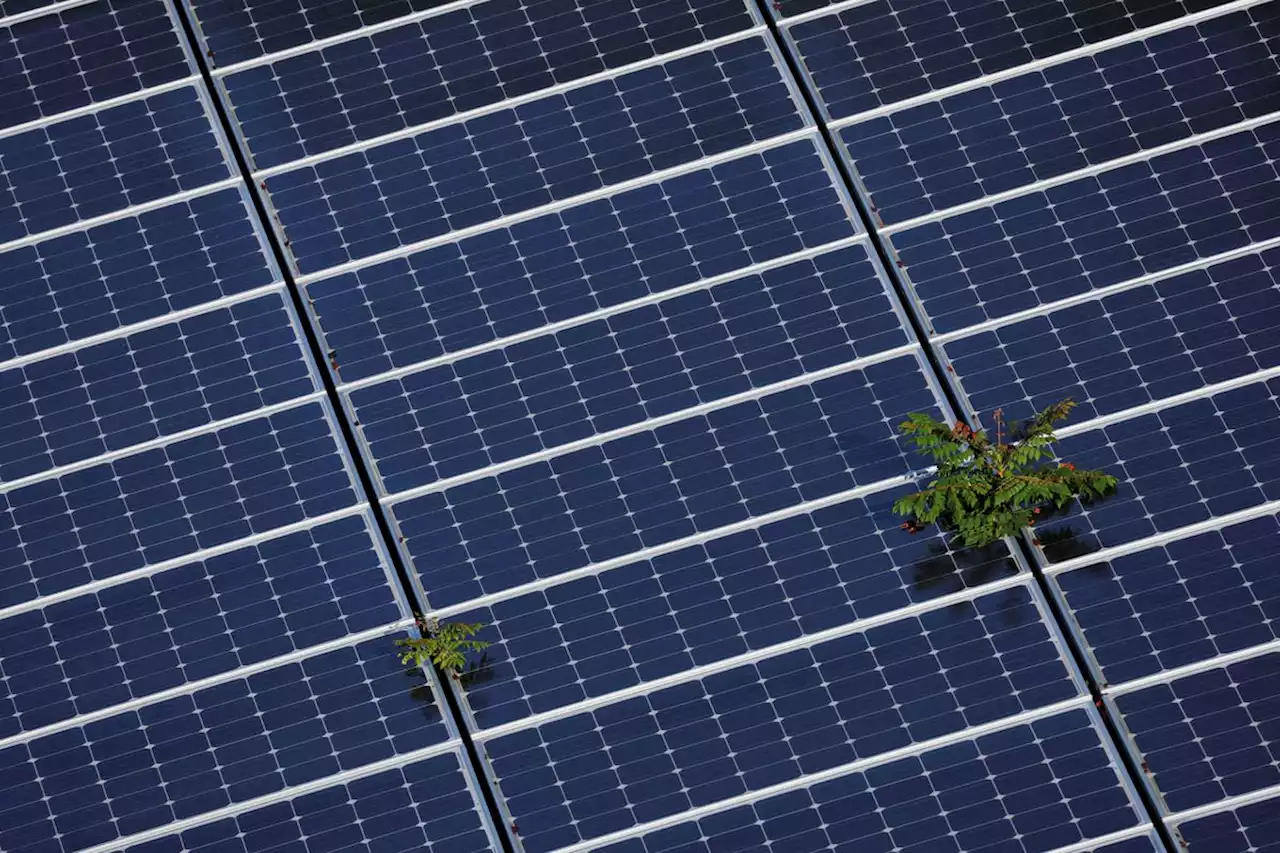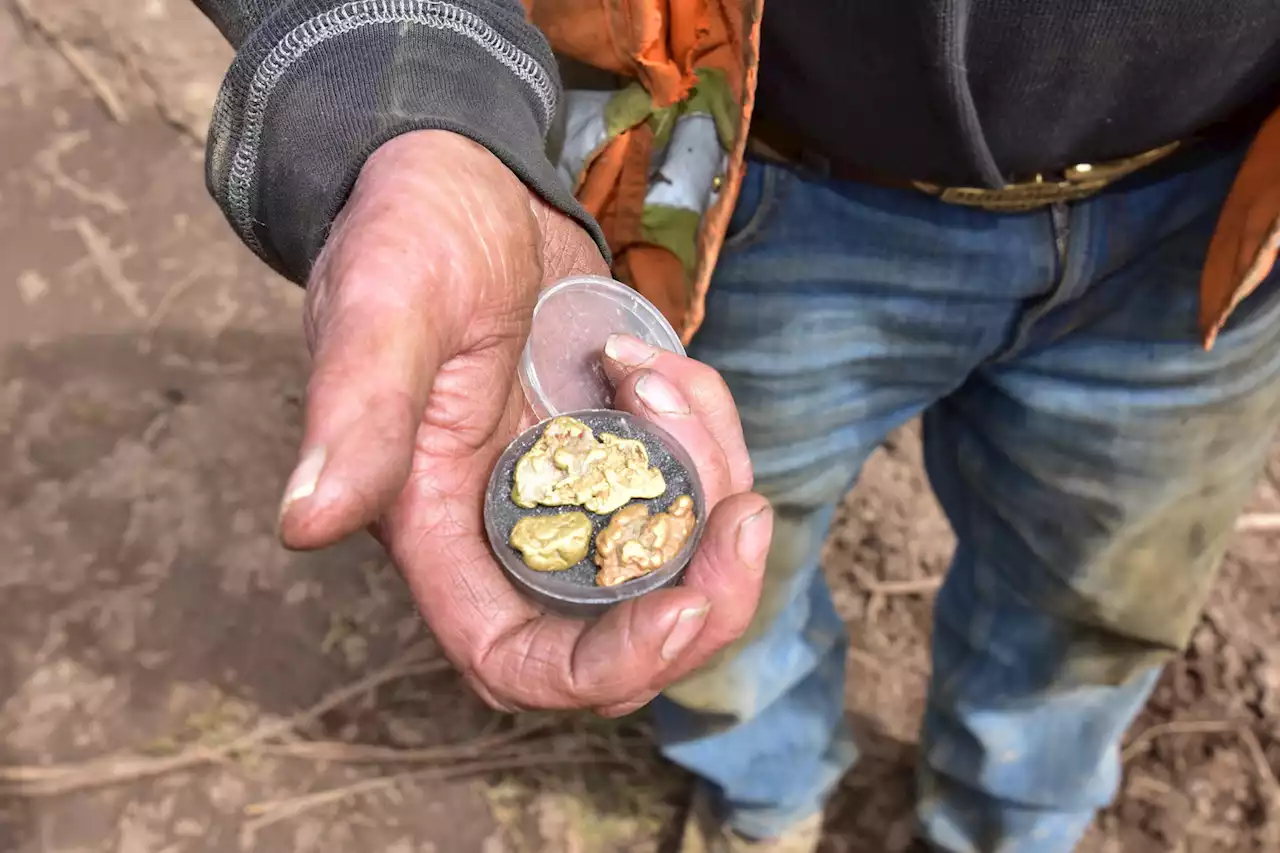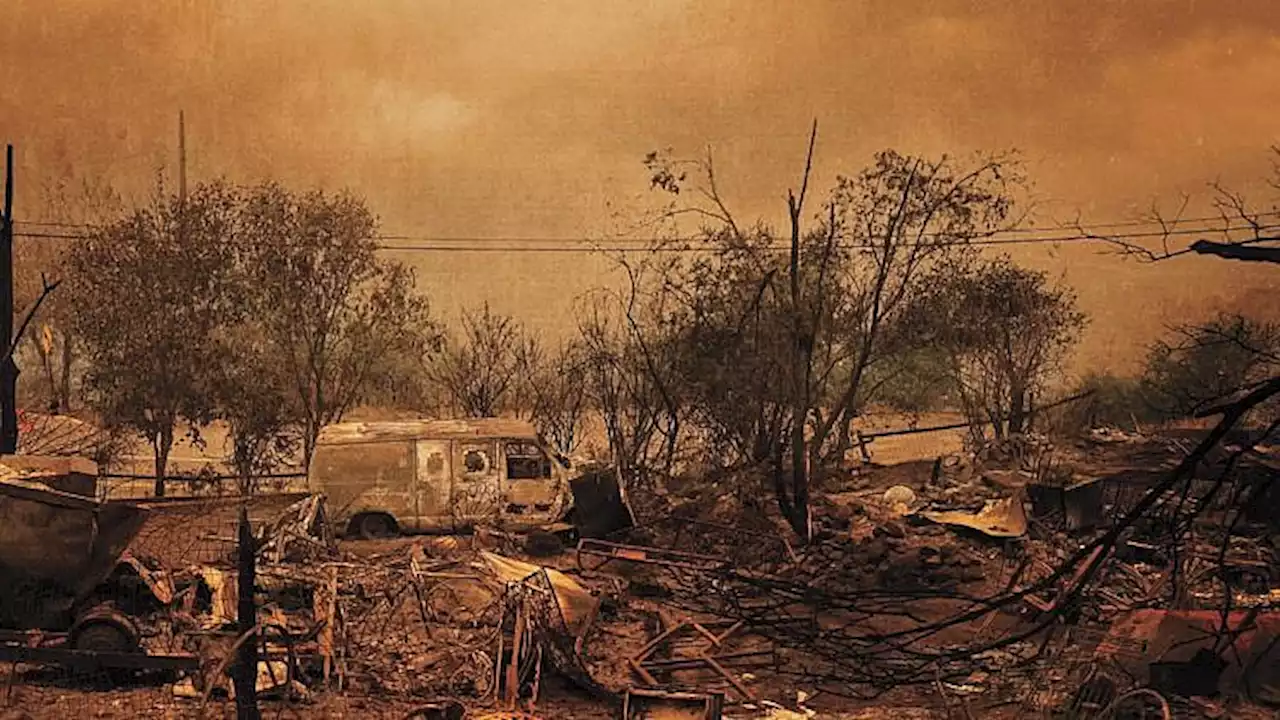By 2060, global warming will push Canada’s climate past recognition. Heat will blanket the country, winters will melt away, wildfires will burn indefinitely and our geography will be irrevocably transformed—and so will we.
In that sense, the heat dome was a foreshock of the world to come, with impacts both immediate and long-lasting. Yet it occurred in a world that has only warmed, on average, about 1.2 degrees since 1850. We’re now racing to 1.5 degrees and are likely to cross that threshold by the mid-2030s. Even if carbon emissions peak soon, as projected, we’re probably headed for two degrees of warming by mid-century, unless that peak is followed by rapid reductions.
Of course, warming isn’t an on/off switch. Long before these departure points, unprecedented hot zones will emerge in the valleys of British Columbia between the Pacific and the Rockies, on the southern Prairies and in Ontario, from Lake Erie to the St. Lawrence River Valley and into Quebec. Montrealers will experience, on average, 37 days over 30 degrees every year, up from 13 today. Torontonians will get 39, up from 12, and Calgarians 20, up from five. The interior of B.C.
And as summers become hotter, winters as we know them will begin to disappear altogether. Damon Matthews is a climate scientist at Concordia University and review editor for the latest Intergovernmental Panel on Climate Change report. Though heat will be the greatest threat to our well-being, he sees the decline of winter shaking our national self-identity the most. “Winter will be redefined,” he says. Backyard shinny games and pond hockey will fade into lore.
And those fires will be fundamentally different—more beastly and less controllable—than the fires we were previously accustomed to. Pyrocumulonimbus can dispatch lightning strikes dozens of kilometres from the main burn, starting more fires. Larger, hotter fires also create more embers, vaulted aloft to drift long distances. These self-sustaining qualities can keep large fires burning indefinitely, until cooler weather and rainfall temper them.
as a future threat—a bill that will be collected as our children enter adulthood. But for increasing numbers of our kids, its destructive effects have already indelibly marked their growing and vulnerable bodies.A hotter North Atlantic will fuel stronger and more frequent hurricanes in the decades to come.Inuit Nunangat is the homeland of Inuit in Canada
“Some years we’re going to have to restrict water and essentially ration it. And there’ll be other years when we’ll perhaps be one of the few places in the world that can still produce food reliably.” These landscape changes will produce domino effects that will have tremendous consequences for animal life, including extinctions. A study last year by European and Australian researchers found that in a scenario roughly consistent with two degrees of warming by mid-century, one in 40 land animal species will go extinct by 2060; by 2100, that number of extinct Canadian species will rise to one in 16.
The impacts will reverberate long after people return home. A survey of 3,000 high school students evacuated from wildfire-ravaged Fort McMurray, Alberta, in 2016 found that, even 18 months later, almost half met the criteria for diagnoses of PTSD, depression, anxiety or substance abuse. In 2013 when 100,000 Albertans were evacuated by extreme flooding, prescriptions for anti-anxiety medications and sleep aids more than doubled in the town of High River.
Debates surrounding climate in Canada will play out not only in Parliament but in the streets—more direct, disruptive and potentially violent than before he has studied the link between climate change, national security and social breakdown. The field is hot: there’s a fast-growing scholarship in what’s termedCanada’s social fabric won’t be immune to these fraying effects. Greaves suggests that, in our country, they will manifest in the polarizing politics that already surrounds climate. But, instead of playing out only in the halls of Parliament, they will play out in our streets, more direct, disruptive and potentially violent than before.
There’s a flip side, though: another study examining climate-change anxiety in young adults found that countries with stronger climate action had lower rates of related anxiety. This suggests that political failures may exacerbate young Canadians’ malaise—but positive measures could cure it. Climate action doesn’t just stave off the worse outcomes of planetary warming.
South Africa Latest News, South Africa Headlines
Similar News:You can also read news stories similar to this one that we have collected from other news sources.
 Animal Alliance of Canada Responds to Concerns of Conflict of Interest in Parks Canada Procurement ProcessThe Animal Alliance of Canada has issued a response to the recent story regarding concerns of a conflict of interest in the procurement process by Parks Canada. The commentary challenges claims made in the article and emphasizes the importance of accountability and transparency in government policy development. The response highlights the concerns raised by Parks Canada staff and the lack of response from leadership, indicating a potential erosion of public trust. The Animal Alliance of Canada stresses the need for fair and equitable awarding of contracts and the adherence to standardized processes in government procurement.
Animal Alliance of Canada Responds to Concerns of Conflict of Interest in Parks Canada Procurement ProcessThe Animal Alliance of Canada has issued a response to the recent story regarding concerns of a conflict of interest in the procurement process by Parks Canada. The commentary challenges claims made in the article and emphasizes the importance of accountability and transparency in government policy development. The response highlights the concerns raised by Parks Canada staff and the lack of response from leadership, indicating a potential erosion of public trust. The Animal Alliance of Canada stresses the need for fair and equitable awarding of contracts and the adherence to standardized processes in government procurement.
Read more »
 Canada's Clean Electricity Regulations and Powering Canada Forward FrameworkCanada's newly announced Clean Electricity Regulations and Powering Canada Forward framework will help ensure the country successfully navigates the global transition away from fossil fuels while protecting affordability and grid reliability. The regulations aim to build a net-zero electricity grid by 2035, aligning with the goals of the Group of Seven.
Canada's Clean Electricity Regulations and Powering Canada Forward FrameworkCanada's newly announced Clean Electricity Regulations and Powering Canada Forward framework will help ensure the country successfully navigates the global transition away from fossil fuels while protecting affordability and grid reliability. The regulations aim to build a net-zero electricity grid by 2035, aligning with the goals of the Group of Seven.
Read more »
 This log cabin for sale in B.C. comes with an active gold mine - Macleans.caLong after the Cariboo Gold Rush, in 2003, Jim and Wendy Gibson bought their very own B.C. goldmine. Now, the mine and its newly renovated cabin are up for sale—bulldozer and excavators included.
This log cabin for sale in B.C. comes with an active gold mine - Macleans.caLong after the Cariboo Gold Rush, in 2003, Jim and Wendy Gibson bought their very own B.C. goldmine. Now, the mine and its newly renovated cabin are up for sale—bulldozer and excavators included.
Read more »
 Tragic Accident in Canada: Father and Teenage Girl Swept Away in FloodA rock musician and his girlfriend were swept away in a flood after their car stalled on a highway in Canada. The musician managed to save the other passengers in the car, but he and a 14-year-old girl were carried away by the current and later found dead. Two other children also died in a separate accident at the same time.
Tragic Accident in Canada: Father and Teenage Girl Swept Away in FloodA rock musician and his girlfriend were swept away in a flood after their car stalled on a highway in Canada. The musician managed to save the other passengers in the car, but he and a 14-year-old girl were carried away by the current and later found dead. Two other children also died in a separate accident at the same time.
Read more »
 Passenger Levels at Sault Ste. Marie Airport Decline in JulyPassenger levels at Sault Ste. Marie Airport experienced a 1% decline in July compared to the same period last year, marking the first year-over-year decline since April 2021. Despite a 13% increase in year-to-date passenger levels compared to last year, the airport still faces a 25% decrease in passenger levels compared to pre-pandemic July 2019. The President and CEO of SSMADC expressed concern over the reversal in the recovery and highlighted the slower rebound in regional markets compared to larger hub airports.
Passenger Levels at Sault Ste. Marie Airport Decline in JulyPassenger levels at Sault Ste. Marie Airport experienced a 1% decline in July compared to the same period last year, marking the first year-over-year decline since April 2021. Despite a 13% increase in year-to-date passenger levels compared to last year, the airport still faces a 25% decrease in passenger levels compared to pre-pandemic July 2019. The President and CEO of SSMADC expressed concern over the reversal in the recovery and highlighted the slower rebound in regional markets compared to larger hub airports.
Read more »
Canada's Heavy Oil Outperforms WTI BenchmarkDemand for oil from Canada is rising as world oil consumption hits new records. Heavy, sour oil grades like those Canada primarily exports are experiencing a 'price renaissance,' outperforming the U.S. light, sweet oil benchmark West Texas Intermediate (WTI). The price of Western Canadian Select (WCS), Canada's main crude export blend, has increased by $15 per barrel (about 20 percent) year-to-date, compared to an increase of about $5 per barrel for WTI. The higher Canadian heavy oil prices can be attributed to reduced supply due to maintenance at oil sands projects and increased demand.
Read more »
